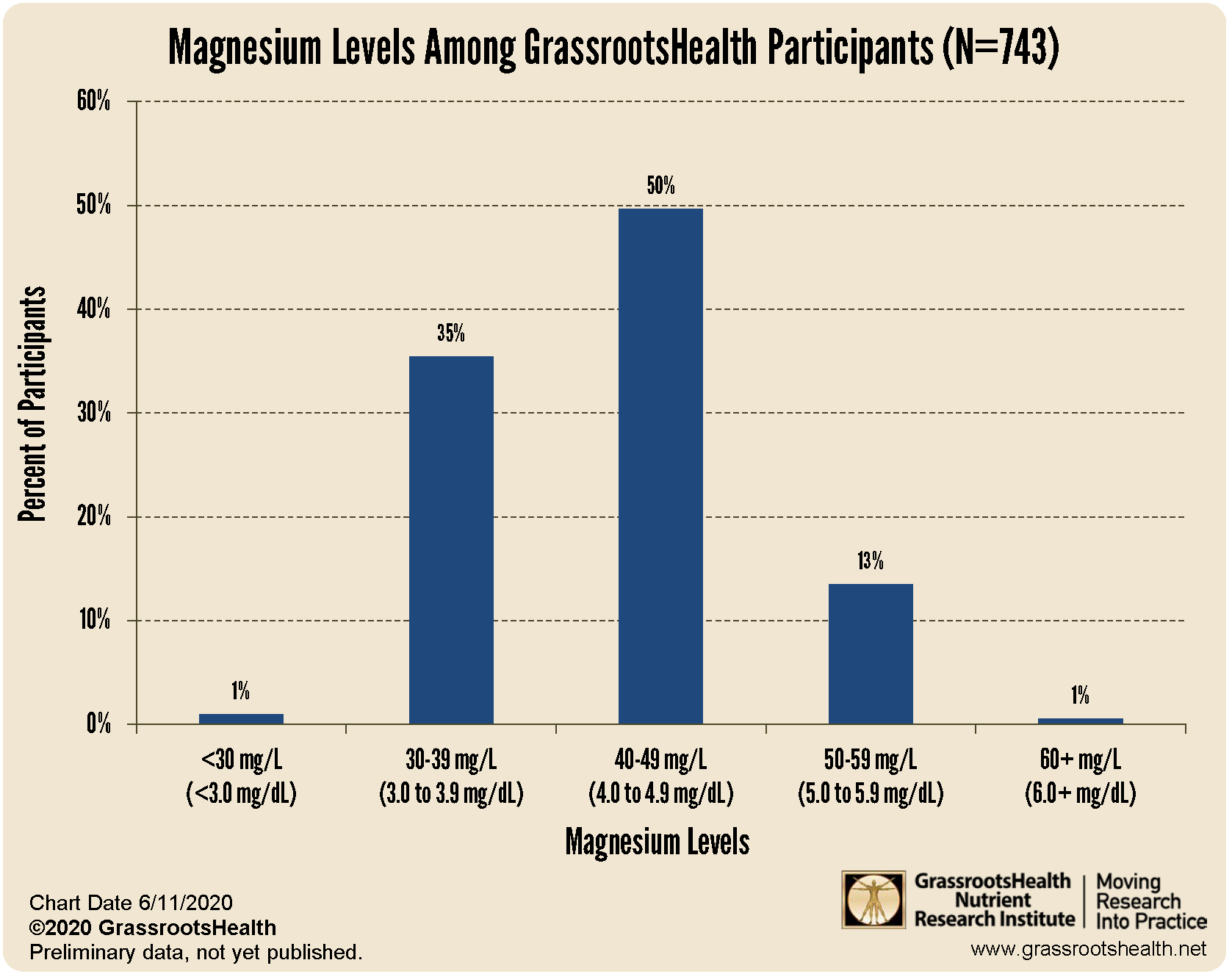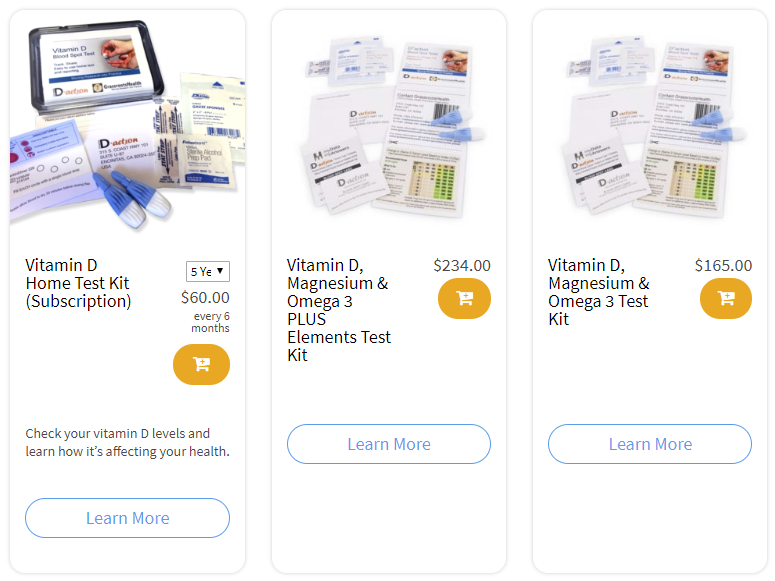Published on June 16, 2020
Magnesium is a mineral essential for many functions within the body including blood pressure regulation, bone health, blood glucose control, and vitamin D activation. Magnesium deficiency is common world-wide and low magnesium levels have been linked to atrial fibrillation (irregular heart rate), hypertension, cardiovascular disease, insulin resistance, type 2 diabetes, and migraines. Magnesium has also been associated with a reduced risk of breast cancer, decreased post-exercise pain and anxiety, and improved cognitive health.
Magnesium Levels among GrassrootsHealth Participants
In 2019, GrassrootsHealth started offering a whole blood magnesium test through our Magnesium*PLUS Focus project. Among the 743 participants who have tested their magnesium levels, 85% have levels between 30-49 mg/L (3.0-4.9 mg/dL).
The average magnesium level (42 mg/L) is on the higher end of the lab reference range (27-49 mg/L), which indicates the range of typical results found in the population the lab serves but does not necessarily indicate the optimal range for health. We will be analyzing those values along with your reported health factors as we continue this project. Thanks to all that are participating!
Have GrassrootsHealth participants been able to improve their levels?
Additionally, 44 participants have completed at least two magnesium tests. Among these participants, 55% improved their magnesium status after their first test. This indicates that when individuals are provided with information about their health, they are empowered to make changes and to take charge of their own health.
Know if you are getting enough magnesium and other important nutrients!
Magnesium, along with vitamin D, zinc, and omega-3s, are just a few nutrients vital to maintaining many aspects of our health. The Magnesium PLUS Essential Elements test kit includes a simple blood spot test to measure these nutrients and more. To know if you are getting enough, make sure you test today!
Are You Getting Enough Vitamin D to Help Yourself?
We’re in a time of great crisis that could be greatly affected by making sure you and everyone you know has a serum level of at least 40 ng/ml. Help us help you.
Do you know what your vitamin D level is? Be sure to test today to find out, and take steps to keep it within a target of 40-60 ng/ml or 100-150 nmol/L! Give your immune system the nutrients it needs to support a healthy you and protect yourself from unnecessary diseases.
GrassrootsHealth Nutrient Research Institute is preparing to do a Community RCT with the use of our myData-myAnswers nutrient health system that over 15,000 people are already using for their health. We will demonstrate how one can use the Nutrient Research Model established by Dr. Robert Heaney to establish the effect of vitamin D serum levels of at least 40 ng/ml (100 nmol/L) on risk reduction with different ethnicities in the population. Please let us know if you’re interested in helping sponsor this project.
CLICK HERE for updates and new information about the project.
Through GrassrootsHealth Nutrient Research Institute, you can also test your essential elements magnesium, copper, zinc and selenium, toxins such as lead, mercury and cadmium, as well as your omega-3 levels, inflammation levels and thyroid stimulating hormone (TSH) level. Find out your levels today! Log on to the test selection page (click the link below) to get your tests and see for yourself if your levels can be improved.
Make sure you track your results before and after, about every 6 months!
Click Here to Access the Test Page
How can I track my nutrient intake and levels over time?
To help you track your supplement use and nutrient levels, GrassrootsHealth has created the Personal Health Nutrient Decision System called

For each specific supplement, you can track what days you take it, how much, and many other details. This will help you know your true supplemental intake and what patterns of use work for you to reach and maintain optimum nutrient levels. Check it out today!








